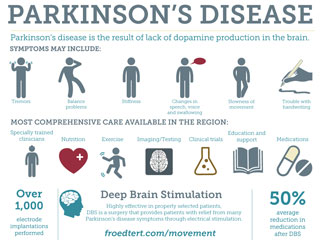
While there are many symptoms of Parkinson’s disease, the most common is trembling. This is a symptom that can develop at any stage of the disease, but it’s especially noticeable in the later stages. Cognitive problems are another complication of Parkinson’s disease, and medications are available to help patients deal with the emotional changes caused by the disorder. People who are experiencing this complication should also take special care to monitor their balance and posture.
One of the most common symptoms of Parkinson’s disease is a lack of dopamine, a chemical that helps control movement. It acts as a messenger between the nervous system and the brain and controls body movements. However, the symptoms of this condition are often worse on one side than the other. This can cause a person to become bedridden, requiring nursing care and full-time supervision. The most common treatment for this type of condition is to seek medical attention immediately.
The most effective treatment for Parkinson’s disease is based on a combination of lifestyle changes, medication, and natural therapies. While most people with this condition can live normal lives with medication, it’s important to seek medical help to learn more about this condition and how to deal with it. For those looking to cure Parkinson’s disease, stem cells may be a viable option. These stem cells, taken from bone marrow or embryos, can produce new neurons. These new neurons will then deliver dopamine to the gene that controls movement. This protein, called BDGF, can also protect dopamine-releasing nerve cells.
While there is no cure for Parkinson’s disease, medications can help patients maintain a high quality of life. Some medications can prevent patients from falling and reduce symptoms during "on" and "off" periods. Other treatments can help patients with this condition manage their symptoms. Some patients may need surgery for this condition. This may be necessary in some cases. This disease can be very frightening for those diagnosed with it. They may not be able to walk on their own.
Treatment for Parkinson’s disease involves taking medications that can control the symptoms of the disease. Some people with this condition experience motor fluctuations with periods of ease and reduced stiffness. Other people with this condition find it difficult to control their movements and hallucinations. The symptoms of this disorder may lead to the need for constant care. If the disease is not treated, patients may develop unpredictable and uncontrollable writhing or body shaking.
Symptoms of Parkinson’s disease can vary from patient to patient. Early symptoms may be mild and come on slowly, but they can still be recognized. These symptoms include uncontrollable writhing movements, shaking, and shaking. Some people can move their body with some help, but they will need constant care. When the disease progresses to this point, it becomes difficult to cope with everyday tasks and maintain an optimal quality of life.
Medicines for Parkinson’s disease can help a person maintain a high quality of life. Symptoms of the disease include tremors, stiffness, and difficulty with coordination. Symptoms of Parkinson’s disease can affect both sides of the body. In severe cases, the symptoms of the disease can make a person bedridden and require care. If left untreated, this condition can lead to poor quality of life.
Medications for Parkinson’s disease are an important part of the treatment for this disease. Medications can help with the symptoms of the disease and can help the patient maintain a high quality of life. Medicines for Parkinson’s disease may not work for some patients. Some of the symptoms of these drugs may be relieved by drugs during the "active" phase of the disease and will not be noticeable during the "off" period.
Site https://www.dflowcollection.com/
says that Parkinson’s disease medications are an important part of treating the disease. Medicines help control the symptoms of the disease. Symptoms of the disease include tremors, stiffness, and uncontrolled movements. Some patients may have an on and off period and off-season. They may suffer from both tremors and stiffness. The off-season can lead to bedwetting in the patient.